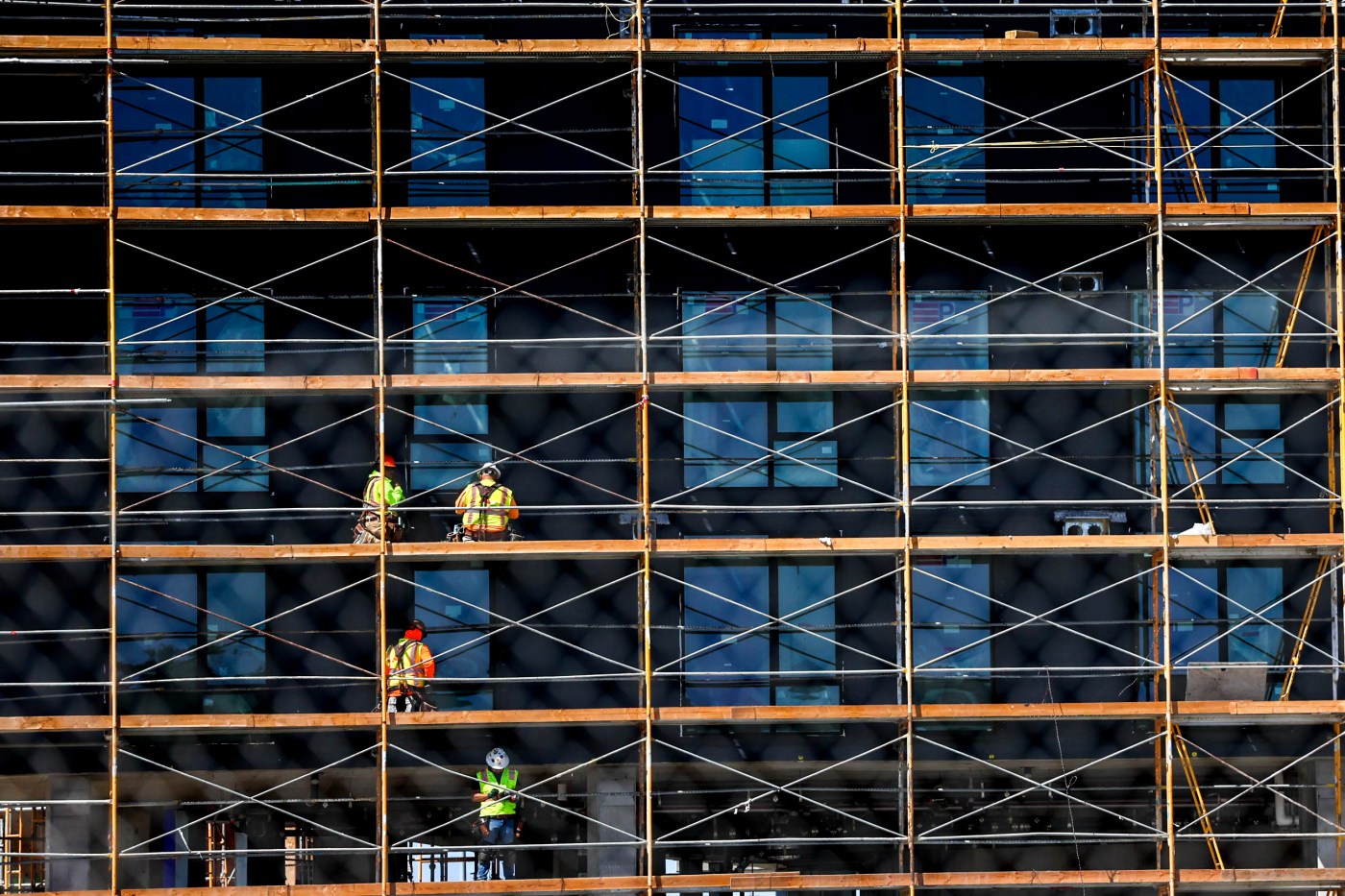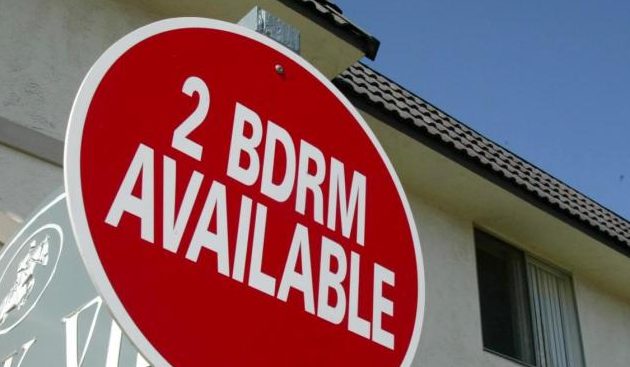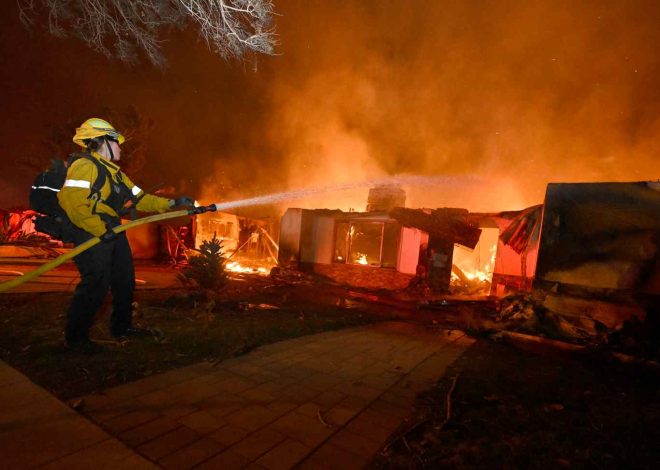
California’s housing policies haven’t always been very effective. Could these new laws give them teeth?
California has passed dozens of bills in recent years aiming to incentivize new housing, but not all of them have been effective in getting more homes built, as opponents have found workarounds to resist new construction.
This year, the state legislature passed several bills aimed at shoring up the laws already on the books, by providing enforcement mechanisms or closing loopholes that made their implementation unclear.
“No more excuses,” said Gov. Gavin Newsom when he signed a package of 32 new housing bills into effect in September. “These new laws — paired with the state’s unprecedented resources — will deliver more housing, get people off the streets, and provide life-changing support that will benefit all Californians.”
Many of the laws involve one of the oldest housing laws on the books: the Housing Accountability Act, passed in 1982, which tells cities how many housing units they must build every eight years, then requires them to come up with a plan showing how they’ll do that.
SB 1037, passed this year, will allow state officials to impose new fines on cities that fail to greenlight more housing or come up with an approved plan for their future homebuilding goals.
Newsom has threatened to sue cities he accuses of violating housing laws, including Half Moon Bay, whose planning commission slow-walked approvals for a farmworker housing project there. Now, the new rule would hold a new threat over their heads. Any fines levied on cities would go toward an affordable housing fund for that jurisdiction.
Under the Housing Accountability Act, cities without an approved housing plan also fall subject to a provision called the “builder’s remedy” — which allows developers to skirt local zoning codes and propose projects far taller and denser than might typically be allowed — so long as 20% of the units are rented at affordable rates to qualifying tenants.
When several Bay Area cities fell behind on their deadlines to submit a state-approved housing plan in 2022, several developers decided to make use of the little-known tool. Neighbors worried that their low-density towns could be “Manhattanized.” The projects include a three-tower complex at the former Sunset Magazine campus in Menlo Park and a hotel and housing project at the Mountain Winery in the hills behind Saratoga.
But those projects haven’t happened — and, in fact, not a single one of the 98 builder’s remedy projects proposed in the Bay Area has broken ground yet, as cities exploit loopholes in the builder’s remedy provision to prevent the projects from moving forward.
AB 1893, authored by Oakland Democratic Assemblymember Buffy Wicks, closes some of those loopholes and also reins in some of the provisions of the controversial housing statute so that developers can’t build anything that they want while still allowing them to build somewhat denser and taller in cities without an approved housing element.
A second Wicks “cleanup” bill expands her Affordable Housing and High Road Jobs Act of 2022, also known as AB 2011, which allowed by-right construction of multifamily housing on most commercially zoned sites.
And under San Francisco Democratic state Sen. Scott Wiener’s SB 937, developers won’t have to pay impact fees — which are imposed by local governments on new construction — until the project is complete, a move intended to help reduce their costs and make more projects pencil out.
“You see a pattern of the Legislature passing housing bills, and cities finding ways to get out of them,” said Matthew Lewis, spokesman for the pro-housing group California YIMBY, on the “clean-up” nature of most housing bills this session. “It’s a game of cat and mouse — and to the extent we need to keep chasing the mice, we will.”
Though Newsom signed the majority of housing bills passed in the legislature, he also left a few on the table.
Notably, the governor — who is widely considered to be interested in holding higher office — vetoed AB 3068, which would have given developers expedited approvals for office-to-housing conversions in city centers around the state. In a veto message, Newsom said he supported office conversions but said the bill went too far in giving cities power to enforce labor standards. The bill would have forced any developer taking advantage of the streamlining to pay workers prevailing wages and given cities the power to revoke a building permit and issue a stop-work order if they found developers not complying, an amendment added toward the end of the session.
Newsom called that “a significant expansion beyond existing law.” Currently, cities can only halt construction on projects for a narrow subset of violations, such as if workers’ immediate health or safety is threatened.
Related Articles
Misinformation, frustration plague new California home buying rules, Realtors say
A vineyard owner tried to provide free housing for his longtime employee. He says Santa Clara County has fined him $120,000
Prop 5 would make it easier to pass Bay Area spending bills for housing, transit
Environmentalists sue to block ‘land grab’ ballot measure in Dublin
State Farm projects dropping 1 million policies in California over next five years
In a blow to affordable housing proponents, Newsom also vetoed AB 3160, which would have sustained increased tax credit allocations for affordable housing by $500 million annually for five years.
With that, he also doomed a bill that was attached to it: AB 3190, a bill pushed by labor unions that would force private developers of federally subsidized low-income tax-credit housing to pay construction workers prevailing wages.
“I want to be clear that I generally share in the goals of this measure, and I am committed to building on the progress we have made as a state to address our housing shortage while also supporting good jobs and wages for those who make this progress possible,” Newsom said in a veto message.


